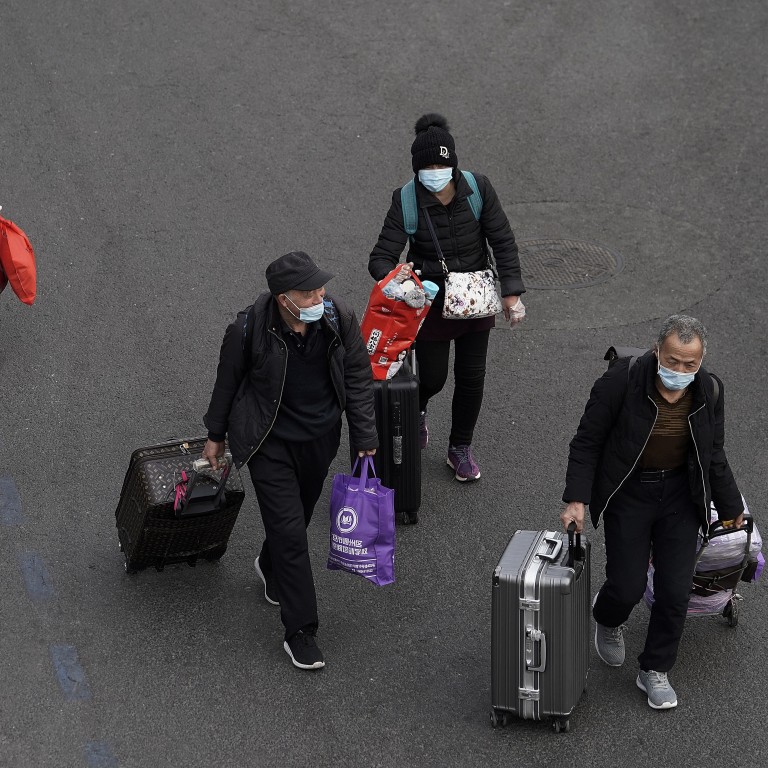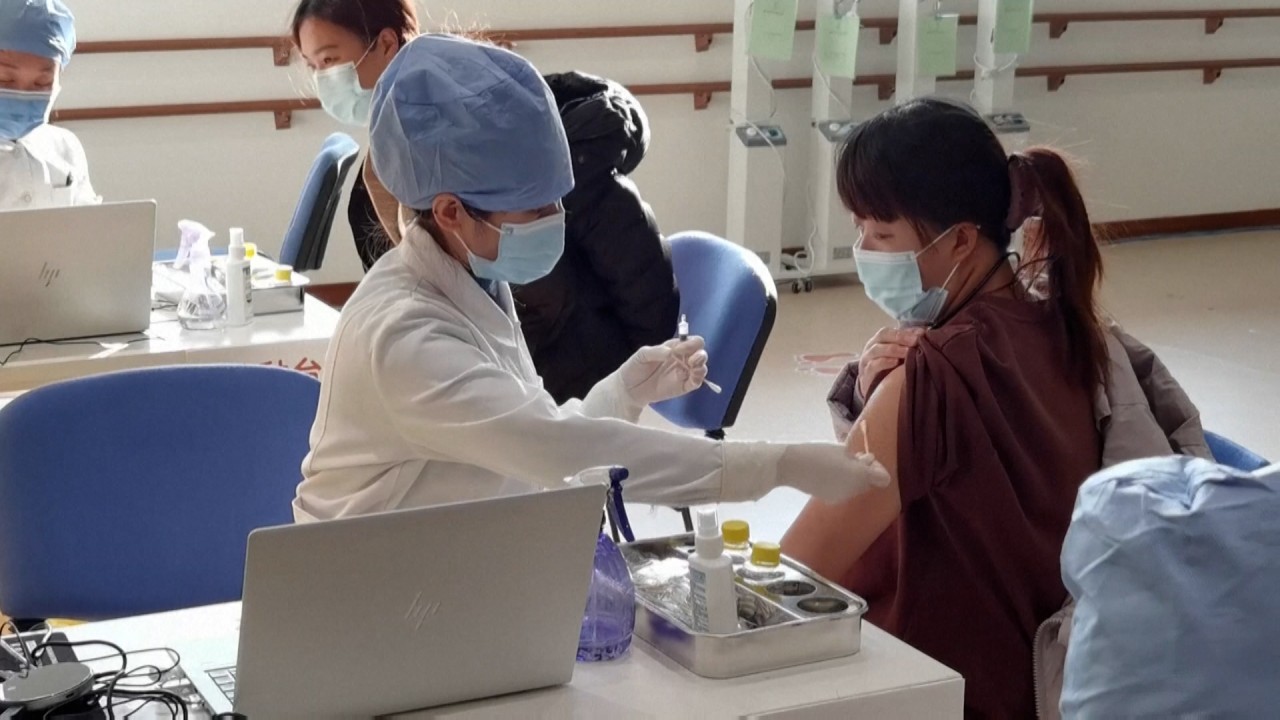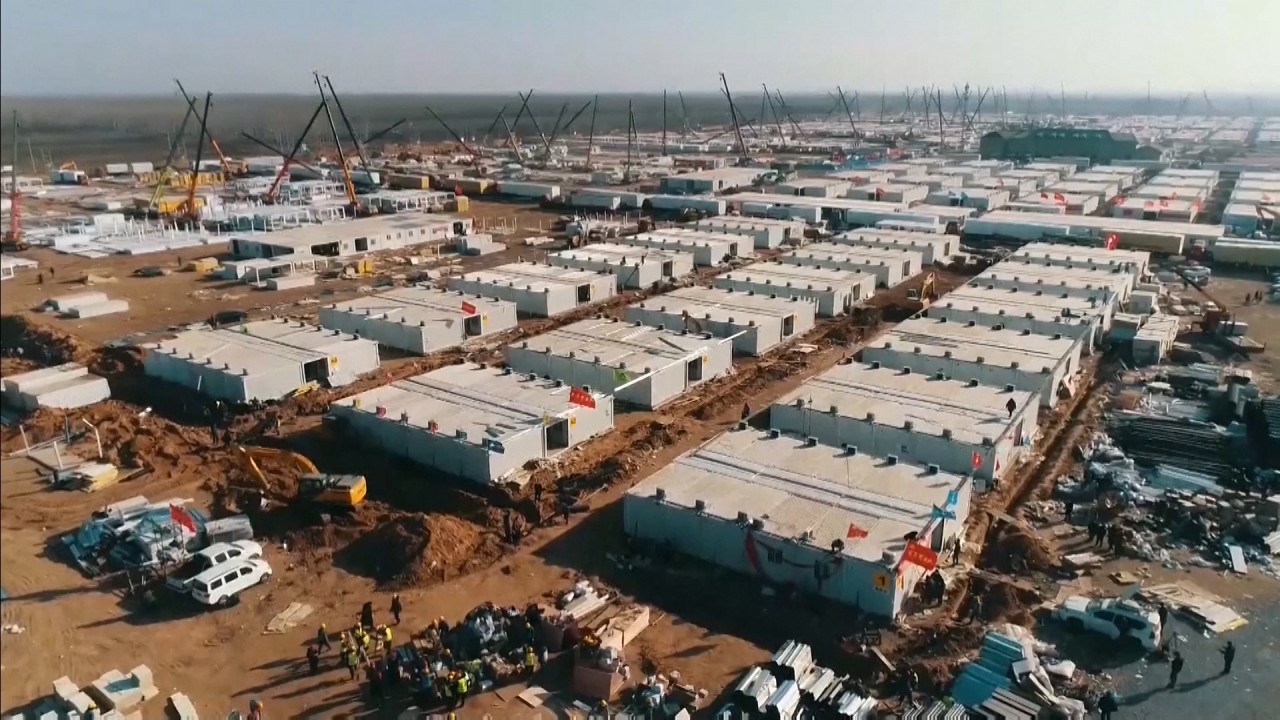
Coronavirus: Chinese travellers chafe at tough rural Lunar New Year restrictions
- Critics question need for tests and two weeks of monitoring over the holiday
- Health authorities say huge numbers of people on the move worsen already poor containment capacity in the countryside
The National Health Commission announced late on Wednesday that people returning to rural areas from other provinces over the holiday would have to produce a negative Covid-19 test taken within seven days and undergo 14 days of “health monitoring” at their rural home.
“Sporadic and cluster outbreaks in rural areas have markedly increased this winter, which has severely affected the normal order of life and production,” the commission said in a notice on its website after social media users complained about the inconvenience.

03:07
China plans to vaccinate 50 million people before the Lunar New Year holiday
Amid the biggest wave of new infections since March, millions of residents in Hebei province surrounding Beijing and in the northeastern provinces of Jilin and Heilongjiang have been put into lockdown in recent weeks.
In all, 144 new cases were reported on Wednesday, marking the highest number of daily infections since March 1, although this still remains a fraction of what China saw during the height of the epidemic last winter.
Among them, 126 cases were new locally transmitted cases, with 68 in Heilongjiang, 33 in Jilin, 20 in Hebei, two in Beijing, two in Shanxi and one in Shandong. China also reported 97 local asymptomatic carriers, which are not included in the official tally.
Roughly 2,400 people are in hospital or under medical observation across the nation, according to the health authorities.
However, China’s railway authorities still expect some 296 million train journeys to be taken from January 28 to March 8 during what is known as chunyun, or the Spring Festival travel rush.

01:51
Aerial view of massive Covid-19 quarantine centre nearing completion in China’s Hebei province
By Thursday noon, the social media platform for Communist Party mouthpiece People’s Daily had more than 8,000 reposts of an article on the rural restrictions and 44,000 comments, many of which were complaints.
“I have three questions,” one user said in a popular post. “First, everyone has a health QR code as a proof of our health status. Why do we need a Covid-19 test result? Second, China categorises the country into three transmission risk zones: high, medium and low. Why should people from low-risk zones have a test? Last but not least, why does the policy only target people going to rural areas? Is it discrimination against migrant workers?”
Coronavirus: is China ready for the mRNA vaccine revolution?
Most of China’s 280 million rural migrant workers usually travel home to their villages at this time of year.
Zhou Wei, a migrant worker in Beijing, said he was dismayed learning about the measures and planned to cancel his trip home to Henan province.
“I had a tough year finding odd jobs in Beijing last year. A nucleic acid test costs around 100 yuan (US$15.50), which is not a small amount of money,” Zhou said. “Even if I return to my hometown, the 14-day health monitoring period will deprive me of all the joys of the festival. Our village party secretary is always strict. I bet he would not allow me to move as I please.”
Coronavirus in China: residents of five Beijing neighbourhoods told to stay home
According to health authorities, people should “avoid unnecessary gathering or going outside” and must take a Covid-19 test every seven days during their rural stays. Local party committees are responsible for monitoring the temperature of visitors daily.
People who work with imported cold chain products and quarantine facility workers, among other groups, must have a test before making a trip, even if it is within the same province.
For mainland people going to urban areas during the period, it is up to authorities in the destination to decide what kind of precautions are needed.

